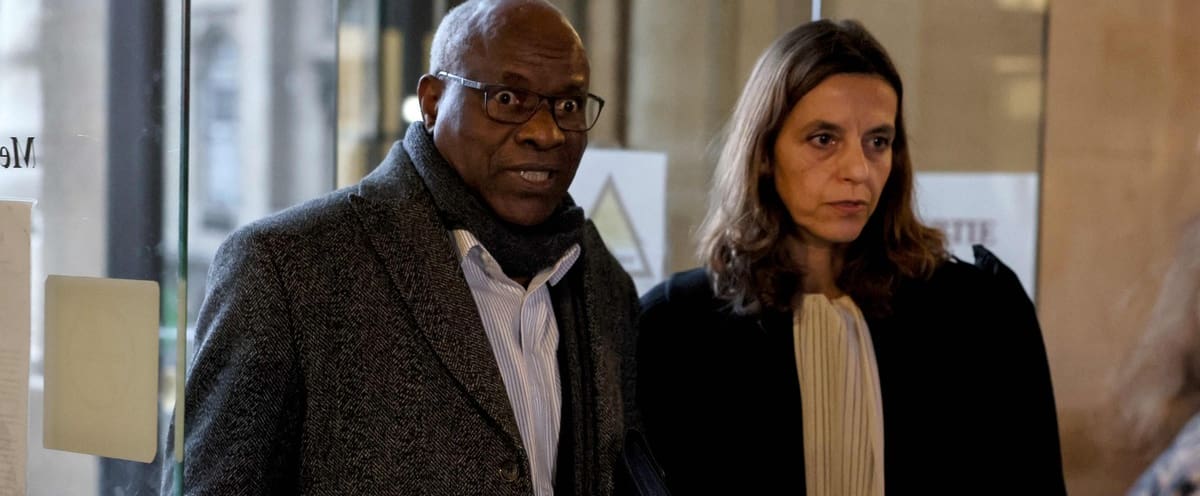A sixth trial in connection with the genocide against the Tutsi in Rwanda has opened in France: a former Rwandan doctor, Sosthène Munyemana, accused of being involved in the 1994 massacres, began appearing before the Paris assize court on Tuesday.
• Also read: Genocide in Rwanda: A former prefect is accused and imprisoned in Paris
• Also read: Four monuments commemorating the Tutsi genocide in Rwanda have been added to UNESCO
Under judicial supervision, the 68-year-old retired gynecologist is on trial for genocide, crimes against humanity, participation in an agreement to prepare these crimes and complicity and faces life imprisonment. He denies the facts.
This is the oldest case investigated in France, on behalf of the universal jurisdiction of the French judiciary, on facts related to this genocide, which, according to the United Nations, killed more than 800,000 people between April and July 1994.
The first complaint against Sosthène Munyemana, who traveled to southwestern France after the massacres that year, was made in Bordeaux (southwest) in 1995 and led to the opening of a judicial investigation.
Long investigation
The duration of the investigation is explained in particular by the “need to carry out investigations abroad”, the “establishment of the Crimes against Humanity Unit” of the Paris Court only in 2012, as well as the “blockage of institutional relations between France and Rwanda between 2009 and 2012,” explained the president of the jury, Marc Sommerer.
The gynecologist, a prominent figure in the Butare region of southern Rwanda, is suspected of having helped draw up a proposal to support the interim government set up after the attack on President Juvénal Habyarimana’s plane, which endorsed the killings. and whose Prime Minister Jean Kambanda was one of his close friends.
He is also accused of participating in a crisis committee that set up barriers and tours during which people were arrested and then killed.
Finally, he is accused of possessing the key to the Tumba sector office, where Tutsis were sometimes held for several days and in “indecent conditions” before their execution, the indictment says.
Sosthène Munyemana argued throughout the investigation that the sector office served as a “sanctuary” for Tutsi seeking a place of protection.
“We would like (…) it to be recognized that not only was Doctor Munyemana not involved in the genocide in any way, but that he himself was seriously threatened by the murderers of the genocide because he was a moderate Hutu,” he stated the journalist Me Jean-Yves Dupeux, who defends him together with Me Florence Bourg, during a break in the hearing.
In total, more than a hundred individuals and eight associations have joined the trial as civil parties and almost 70 witnesses must be heard.
After the President read out his report on the facts alleged against the defendant, the latter, dressed in a blue striped shirt and a gray jacket, indicated that he would “settle” certain things “gradually.”
His lawyers deplored the fact that certain civil parties testified in court without being heard as part of the investigation.
“Arms inequality”?
They denounced an “obvious inequality of arms” to the detriment of the defense and demanded that these witnesses be investigated.
The jury rejected this request, which was described by one of the two attorneys general as “purely procrastinating” and “serving the sole purpose of rejecting the judicial debate and requesting the postponement of this trial.”
When he arrived in France in September 1994, where his wife was already living, Sosthène Munyemana, father of three, a trained gynecologist, worked as an emergency doctor in the southwest before reorienting himself in geriatrics.
Because he had an international arrest warrant issued against him by the Rwandan authorities, his asylum application was rejected in 2008, but the French judiciary refused his extradition in 2010 so that he could face trial in his country.
Six men have already been convicted in France for their role in the genocide, with sentences ranging from 14 years of criminal imprisonment to life in prison. Three of them still have to be judged on appeal.

